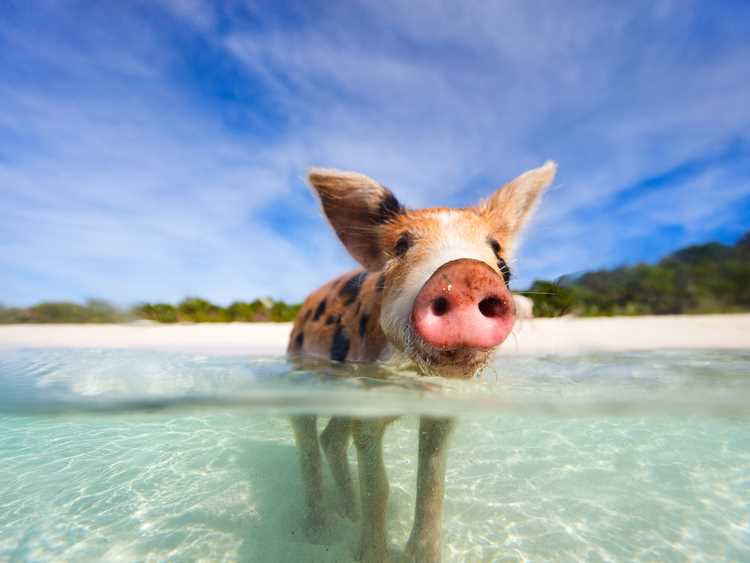
Our planet’s oceans cover more than 70% of the Earth’s surface, playing a vital role in regulating our climate and providing a home to a diverse range of marine life. However, due to human activities and pollution, many of these once-pristine waters have become contaminated and threatened. In the face of this environmental crisis, it is crucial to highlight the oceans that have managed to maintain their cleanliness and integrity.
Deep beneath the waves, a hidden world of breathtaking beauty awaits. From crystal-clear waters to untouched coral reefs, some oceans have managed to preserve their natural splendor against all odds. The title of the world’s cleanest ocean is a coveted one, with several contenders vying for the top spot. Factors such as water quality, biodiversity, and conservation efforts all play a crucial role in determining which ocean deserves this prestigious accolade.
One ocean that consistently ranks among the world’s cleanest is the Southern Ocean, also known as the Antarctic Ocean. Its remote location, far from industrial activity, has allowed it to remain free from pollution and human impact. The Southern Ocean is home to an array of unique and fragile ecosystems, including large populations of seals, whales, and penguins. Efforts to protect and preserve this pristine environment have led to its recognition as one of the world’s most ecologically significant areas.
- The Search for the Cleanest Ocean
- Factors Impacting Ocean Cleanliness
- The Importance of Clean Oceans
- The Seven Wonders of Ocean Purity
- Exploring the Depths: Ocean Pollution Statistics
- Crystal Clear Beauty: Pristine Ocean Locations
- The Secrets of Successful Ocean Conservation
- 1. Collaboration
- 2. Education and Awareness
- Guardians of the Blue Planet
- Marine Conservation Institutes
- Blue Marine Foundation
- The Future of Ocean Sustainability
- Question-answer
- Is there an ocean that is considered the cleanest in the world?
- How is the cleanest ocean determined?
- Which ocean tops the list as the cleanest?
- Why is the Southern Ocean considered the cleanest?
- What are the benefits of having a clean ocean?
- Which ocean is considered the cleanest in the world?
The Search for the Cleanest Ocean
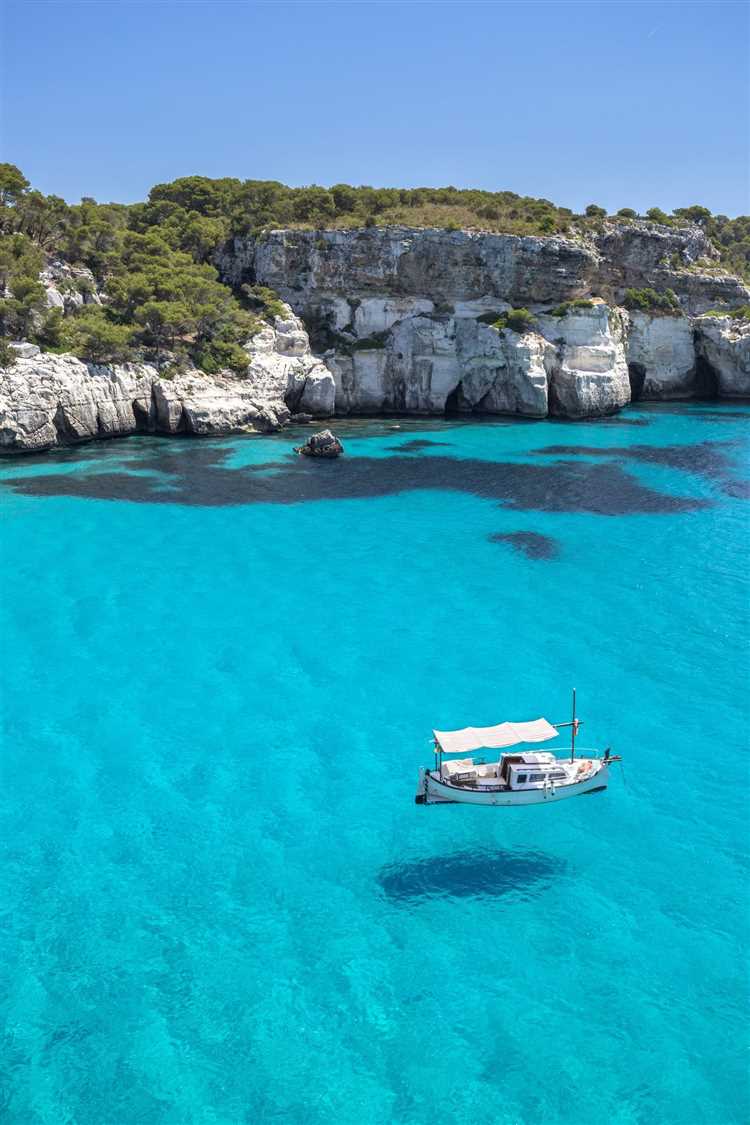
When it comes to a clean and pristine environment, the world’s oceans are not usually the first thing that comes to mind. However, there are some oceans that have managed to stay relatively untouched by pollution and human activities. These oceans are a testament to the importance of conservation and environmental efforts.
One of the top contenders for the cleanest ocean in the world is the Southern Ocean. Located around Antarctica, this ocean has very little human activity and pollution. Its remote location and harsh climate have helped to preserve its pristine state. The Southern Ocean is home to a diverse range of marine species, including seals, whales, and penguins.
Another contender for the cleanest ocean is the Pacific Ocean. As the largest and deepest ocean on Earth, the Pacific Ocean has a vast expanse of water that dilutes pollutants and allows for natural processes to cleanse the water. Additionally, the Pacific Ocean benefits from strict environmental regulations and conservation efforts in countries bordering its shores.
Factors Impacting Ocean Cleanliness
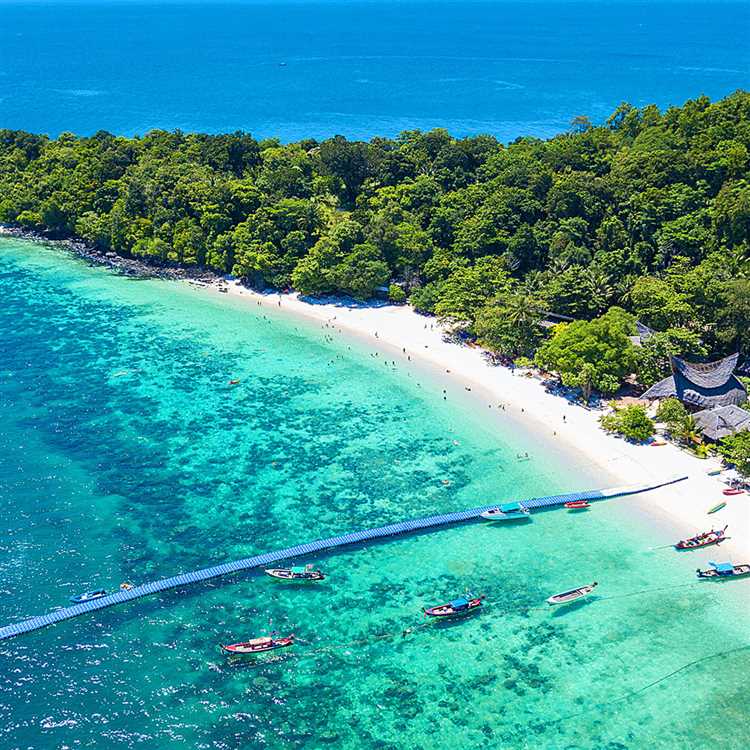
There are several factors that contribute to the cleanliness of an ocean. One of the most important factors is the amount of human activity in the area. Oceans that are heavily trafficked by ships, have large coastal populations, or are near industrial areas are more likely to be polluted. In contrast, oceans that are remote and have limited human presence are generally cleaner.
Another factor is the level of pollution control and environmental regulations in the countries surrounding the ocean. Countries with strong environmental policies and enforcement tend to have cleaner oceans. Additionally, the presence of protected marine areas and conservation efforts can also contribute to the cleanliness of an ocean.
The Importance of Clean Oceans
Clean oceans are vital for the health of marine ecosystems and the well-being of the planet as a whole. Oceans play a crucial role in regulating the Earth’s climate, providing habitat for countless species, and supporting the livelihoods of millions of people around the world. Pollution and human activities can have devastating impacts on marine life and ecosystems, leading to loss of biodiversity and disruption of important ecological processes.
By preserving and protecting clean oceans, we can ensure the long-term health and sustainability of our planet. This requires a collective effort from governments, businesses, and individuals to reduce pollution, improve waste management, and promote sustainable practices. The search for the cleanest ocean is not just about finding pristine environments; it’s also about raising awareness and inspiring action to protect and restore our oceans.
The Seven Wonders of Ocean Purity
When it comes to pristine and unspoiled waters, there are certain oceans that stand out from the rest. These seven wonders of ocean purity have been selected for their exceptional cleanliness and environmental stewardship. From Asia to the Americas, these oceans boast crystal clear waters and thriving marine ecosystems.
1. The Great Barrier Reef, Australia: This iconic natural wonder is not only the world’s largest coral reef system but also home to some of the cleanest and most vibrant waters on Earth. With strict regulations in place to preserve its delicate ecosystem, the Great Barrier Reef offers a glimpse into the beauty and diversity of the underwater world.
2. The Maldives: Located in the Indian Ocean, the Maldives is renowned for its picture-perfect beaches and crystal clear waters. The Maldives’ commitment to sustainability and marine conservation has ensured that the waters surrounding its 26 coral atolls remain pristine and teeming with colorful coral reefs and marine life.
3. Bora Bora, French Polynesia: This idyllic Pacific island is famous for its turquoise lagoons and secluded beaches. The waters surrounding Bora Bora are known for their exceptional clarity, allowing for incredible visibility for snorkelers and divers. The island’s commitment to protecting its marine environment ensures that these waters remain untouched by pollution.
4. Lofoten Islands, Norway: Situated within the Arctic Circle, the Lofoten Islands offer a unique blend of breathtaking landscapes and pristine waters. The cold, nutrient-rich currents of the Norwegian Sea support a diverse array of marine life, including whales, seals, and seabirds. With strict fishing regulations in place, the waters off the Lofoten Islands remain among the most pristine in the world.
5. Galapagos Islands, Ecuador: The Galapagos Islands are renowned for their extraordinary biodiversity and unique wildlife. The volcanic archipelago is surrounded by nutrient-rich currents, resulting in some of the clearest and purest waters in the world. The strict regulations imposed by the Ecuadorian government help maintain the islands’ pristine marine environment.
6. Palau: Located in the western Pacific Ocean, Palau is a paradise for divers and snorkelers. Its crystal clear waters are home to an abundance of coral reefs, marine life, and underwater caves. Palau has been a leader in marine conservation, establishing one of the world’s first shark sanctuaries and implementing sustainable fishing practices.
7. Seychelles: Situated off the east coast of Africa, the Seychelles is a tropical paradise known for its white sandy beaches and turquoise waters. Its remote location has helped preserve its pristine marine environment, offering visitors a chance to explore untouched coral reefs and dive alongside a diverse range of marine life.
These seven wonders of ocean purity remind us of the importance of protecting our seas and oceans. By implementing sustainable practices and raising awareness about the fragility of these ecosystems, we can ensure that these pristine waters continue to thrive for future generations to enjoy.
Exploring the Depths: Ocean Pollution Statistics
Ocean pollution is a growing concern around the world. The health of our oceans is crucial, as they play a vital role in supporting marine life and maintaining the balance of the global ecosystem. Here are some eye-opening statistics about ocean pollution that highlight the urgency of addressing this issue:
1. Plastic Pollution:
More than 8 million tons of plastic enter the ocean each year, equivalent to a dump truckload every minute. This plastic pollution poses a significant threat to marine life, as animals can mistake it for food or become entangled in it.
2. Microplastics:
Microplastics, tiny pieces of plastic less than 5 millimeters in size, are widespread in the ocean. It is estimated that there are currently more than 5 trillion pieces of microplastics floating in the world’s oceans.
3. Chemical Pollution:
Chemical pollution, including oil spills and industrial run-off, contaminates the ocean and affects marine life. It is estimated that more than 3 million gallons of oil are released into the ocean each year, primarily from human activities.
4. Overfishing:
Overfishing is a significant threat to the health of our oceans. Around 33% of global fish stocks are overfished, meaning they are being harvested at an unsustainable rate, leading to the depletion of fish populations and disruption of marine ecosystems.
5. Dead Zones:
Dead zones, areas of oxygen-depleted water, are expanding in the world’s oceans. These zones are primarily caused by excessive nutrient pollution from agricultural run-off and sewage. Currently, there are more than 500 identified dead zones worldwide.
6. Coral Reef Destruction:
Coral reefs, which are home to a quarter of all marine species, are under threat due to pollution. It is estimated that 75% of the world’s coral reefs are currently at risk, mainly due to pollution, overfishing, and climate change.
7. Impact on Human Health:
Ocean pollution not only harms marine life but also poses risks to human health. Consuming contaminated seafood can lead to serious health problems, as toxic substances accumulate in the flesh of fish and other marine animals.
8. Economic Consequences:
The economic costs of ocean pollution are staggering. It is estimated that the global cost of plastic pollution alone is over $13 billion per year, including the impact on tourism, fishing industries, and clean-up efforts.
In conclusion, these statistics highlight the urgent need to take action to address ocean pollution. By implementing strict regulations, promoting sustainable practices, and raising awareness, we can protect the health of our oceans and ensure the survival of marine life for future generations.
Crystal Clear Beauty: Pristine Ocean Locations
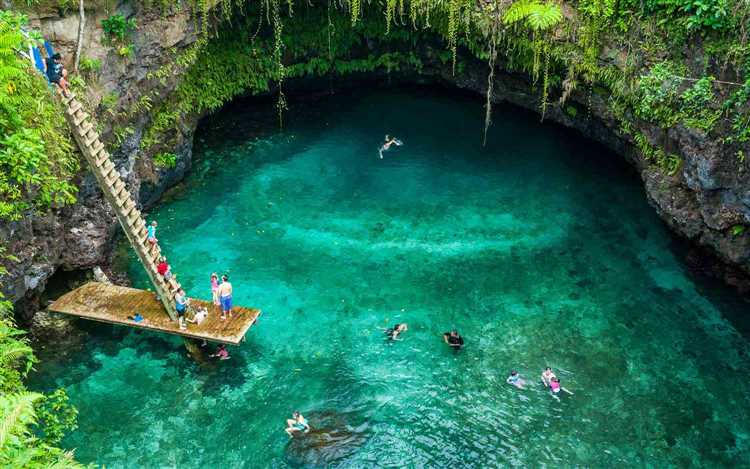
Tucked away in remote corners of the globe, there are pristine ocean locations that showcase the true meaning of crystal clear beauty. These stunning destinations are characterized by their sparkling turquoise waters, untouched marine life, and breath-taking landscapes. Whether you are a scuba diving enthusiast or simply crave a serene beach getaway, these pristine ocean locations are sure to leave you in awe.
1. Maldives: This archipelago in the Indian Ocean is renowned for its white sandy beaches and vivid coral reefs. The clear waters provide excellent visibility, making it a paradise for snorkelers and divers. With its luxurious resorts and stunning underwater scenery, the Maldives is a dream destination for those seeking a pristine ocean experience.
2. Bora Bora, French Polynesia: Known for its iconic overwater bungalows and vibrant lagoons, Bora Bora is a true paradise. The crystal clear waters of the lagoon offer opportunities for swimming, snorkeling, and paddleboarding. Imagine encountering colorful coral gardens and swimming alongside tropical fish in this idyllic setting.
3. Palawan, Philippines: Consistently ranked as one of the world’s most beautiful islands, Palawan boasts crystal clear waters and abundant marine life. The province is famous for its incredible lagoons, hidden beaches, and limestone cliffs. Snorkel in the rich coral reefs of El Nido or kayak through the enchanting lagoons of Coron – Palawan will leave you mesmerized.
4. Sipadan Island, Malaysia: Located in the Celebes Sea, Sipadan Island is a haven for divers. Its pristine waters are teeming with an impressive array of vibrant coral and marine species, including sea turtles, sharks, and schools of barracuda. Dive into the depths of Sipadan and discover a world of underwater wonders.
5. Seychelles: Situated in the Indian Ocean, the Seychelles archipelago offers endless stretches of white sandy beaches and sparkling turquoise waters. The marine life is impressive, with opportunities to spot manta rays, tropical fish, and even whale sharks. With its untouched natural beauty, the Seychelles is a true gem for ocean enthusiasts.
When it comes to crystal clear beauty and pristine ocean locations, these destinations truly stand out. Exploring their underwater wonders and experiencing the tranquility they offer is like stepping into a dream.
The Secrets of Successful Ocean Conservation
Ocean conservation is a crucial endeavor that aims to protect the health and vitality of our oceans. With rising concerns about pollution, overfishing, and climate change, it is more important than ever to find effective ways to preserve our ocean ecosystems. Here are some key secrets to successful ocean conservation:
1. Collaboration
Successful ocean conservation relies on collaboration between governments, organizations, communities, and individuals. By coming together and sharing resources, knowledge, and expertise, we can achieve greater impact and make a difference in preserving our oceans.
2. Education and Awareness
Education and awareness play a vital role in ocean conservation. By raising awareness about the importance of our oceans and the threats they face, we can inspire individuals to take action and make informed choices that benefit the environment. Education programs, public campaigns, and media outreach are powerful tools for spreading the message.
Furthermore, educating future generations about ocean conservation ensures that the momentum continues and that future leaders will be equipped with the knowledge and passion to protect our oceans.
3. Sustainable Practices
Implementing sustainable practices is essential for the long-term health of our oceans. This includes promoting sustainable fishing practices, reducing plastic waste and pollution, and supporting sustainable tourism initiatives. By adopting sustainable practices in our daily lives and industries, we can minimize our impact on the oceans and preserve them for future generations.
4. Protected Areas
Establishing protected marine areas is another critical aspect of successful ocean conservation. These areas serve as havens for marine biodiversity, providing sanctuary and protection for vulnerable species. By designating and effectively managing protected areas, we can ensure the preservation of essential habitats and the restoration of damaged ecosystems.
5. Science and Research
Science and research provide the foundation for effective ocean conservation. By conducting research on marine ecosystems, biodiversity, and the impacts of human activities, we can make informed decisions and develop targeted conservation strategies. Ongoing monitoring and scientific studies enable us to track changes and assess the effectiveness of conservation efforts.
6. Global Cooperation
Ocean conservation knows no borders, and successful efforts require global cooperation. By working together on international frameworks and agreements, countries can address common challenges and collaborate on solutions. This includes sharing data, resources, and knowledge, as well as implementing international regulations to tackle issues such as illegal fishing and marine pollution.
7. Long-term Commitment
Successful ocean conservation requires long-term commitment and dedication. It is a continuous effort that requires sustained action and adaptation to new challenges. By staying committed and fostering a sense of responsibility towards the oceans, we can ensure their protection and sustainable use for generations to come.
By following these key secrets of successful ocean conservation, we can make a significant and positive impact on the health and wellbeing of our oceans. Each individual action, no matter how small, contributes to the collective effort of preserving these valuable ecosystems and the diverse life they support.
Guardians of the Blue Planet
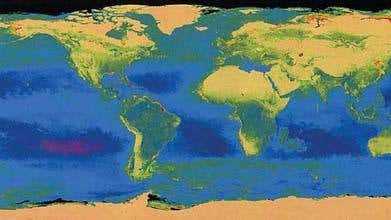
Oceans are vital for our planet’s survival, and protecting them is of utmost importance. Fortunately, there are various organizations and initiatives that act as guardians of the blue planet, working to preserve and restore the health of our oceans. These dedicated groups play a crucial role in combatting pollution, overfishing, and other threats to marine life.
One such organization is the Ocean Conservancy, a non-profit that advocates for science-based solutions to ocean challenges. With a focus on protecting marine ecosystems and promoting sustainable fishing practices, the Ocean Conservancy works to ensure a healthy and thriving ocean for future generations.
Another influential group is the Surfrider Foundation, which aims to protect the world’s coastlines and ocean waves through activism and community engagement. By organizing beach cleanups, advocating for marine protection policies, and raising awareness about the importance of healthy oceans, the Surfrider Foundation helps to safeguard the precious resources of our blue planet.
Marine Conservation Institutes
The Marine Conservation Institutes is a global organization dedicated to safeguarding the world’s oceans and marine biodiversity. Through their work, they strive to create a network of marine protected areas, which serve as safe havens for marine life and habitats. By collaborating with governments and local communities, the Marine Conservation Institutes empower sustainable ocean management practices.
Blue Marine Foundation
The Blue Marine Foundation is focused on restoring the health and abundance of the world’s oceans. They work on a range of projects, from implementing sustainable fishing practices to creating marine reserves. By partnering with local communities and governments, the foundation aims to preserve marine ecosystems and promote a sustainable blue economy.
These are just a few examples of the many organizations and initiatives that are working tirelessly to protect our oceans. Through their collective efforts, they are helping to ensure that future generations will be able to enjoy the beauty and wonders of the world’s cleanest ocean.
| Organization | Focus |
|---|---|
| Ocean Conservancy | Protecting marine ecosystems and promoting sustainable fishing practices |
| Surfrider Foundation | Protecting coastlines and ocean waves through activism and community engagement |
| Marine Conservation Institutes | Safeguarding the world’s oceans and marine biodiversity through the creation of marine protected areas |
| Blue Marine Foundation | Restoring the health and abundance of the world’s oceans through various projects |
The Future of Ocean Sustainability
Ocean sustainability is a crucial issue that needs to be addressed in order to protect and preserve the world’s oceans. As the global population continues to grow and industries continue to expand, the impact on the oceans has become increasingly significant. It is essential to develop and implement sustainable practices to ensure the long-term health and viability of our oceans.
One key aspect of ocean sustainability is the reduction of pollution. Industrial waste, plastic debris, and chemical runoff from agriculture are just a few examples of the pollutants that end up in the ocean. These pollutants can have devastating effects on marine life, causing habitat destruction, harmful algal blooms, and the death of aquatic species. By implementing stricter regulations and investing in cleaner technologies, we can work towards reducing pollution and improving the overall health of the oceans.
Another important aspect of ocean sustainability is the conservation of marine biodiversity. The ocean is home to a wide variety of species, many of which are facing threats of extinction due to overfishing, habitat destruction, and climate change. It is crucial to establish protected areas, such as marine sanctuaries and marine reserves, where these species can thrive and reproduce. Additionally, sustainable fishing practices, such as implementing catch limits and using selective fishing gear, can help to conserve fish populations and maintain a healthy ecosystem.
Climate change is a significant challenge for ocean sustainability. Rising sea temperatures, ocean acidification, and sea-level rise are just a few of the effects of climate change that are impacting the oceans. These changes pose a threat to coral reefs, marine life, and coastal communities. To combat climate change and its impacts on the ocean, it is necessary to reduce greenhouse gas emissions, transition to renewable energy sources, and promote sustainable land-use practices.
Education and awareness are also crucial for the future of ocean sustainability. By educating the public about the importance of the oceans and the threats they face, we can inspire individuals to take action and make sustainable choices in their daily lives. This can include reducing plastic consumption, supporting sustainable seafood choices, and participating in beach clean-ups and conservation efforts.
In conclusion, the future of ocean sustainability relies on our ability to address key challenges such as pollution, biodiversity loss, climate change, and the lack of awareness. By implementing sustainable practices and policies, we can work towards protecting and preserving the world’s oceans for future generations.
Question-answer
Is there an ocean that is considered the cleanest in the world?
Yes, there is an ocean that is considered the cleanest in the world.
How is the cleanest ocean determined?
The cleanest ocean is determined based on various factors such as pollution levels, water quality, marine biodiversity, and human impact.
Which ocean tops the list as the cleanest?
The Southern Ocean, also known as the Antarctic Ocean, tops the list as the cleanest ocean in the world.
Why is the Southern Ocean considered the cleanest?
The Southern Ocean is considered the cleanest due to its isolation and minimal human presence. It is far from major industrial activities and has fewer pollutants compared to other oceans.
What are the benefits of having a clean ocean?
Having a clean ocean is important for various reasons. It supports marine life and biodiversity, provides opportunities for sustainable fishing and tourism, helps regulate the climate, and contributes to overall environmental health.
Which ocean is considered the cleanest in the world?
The Southern Ocean is considered the cleanest ocean in the world.